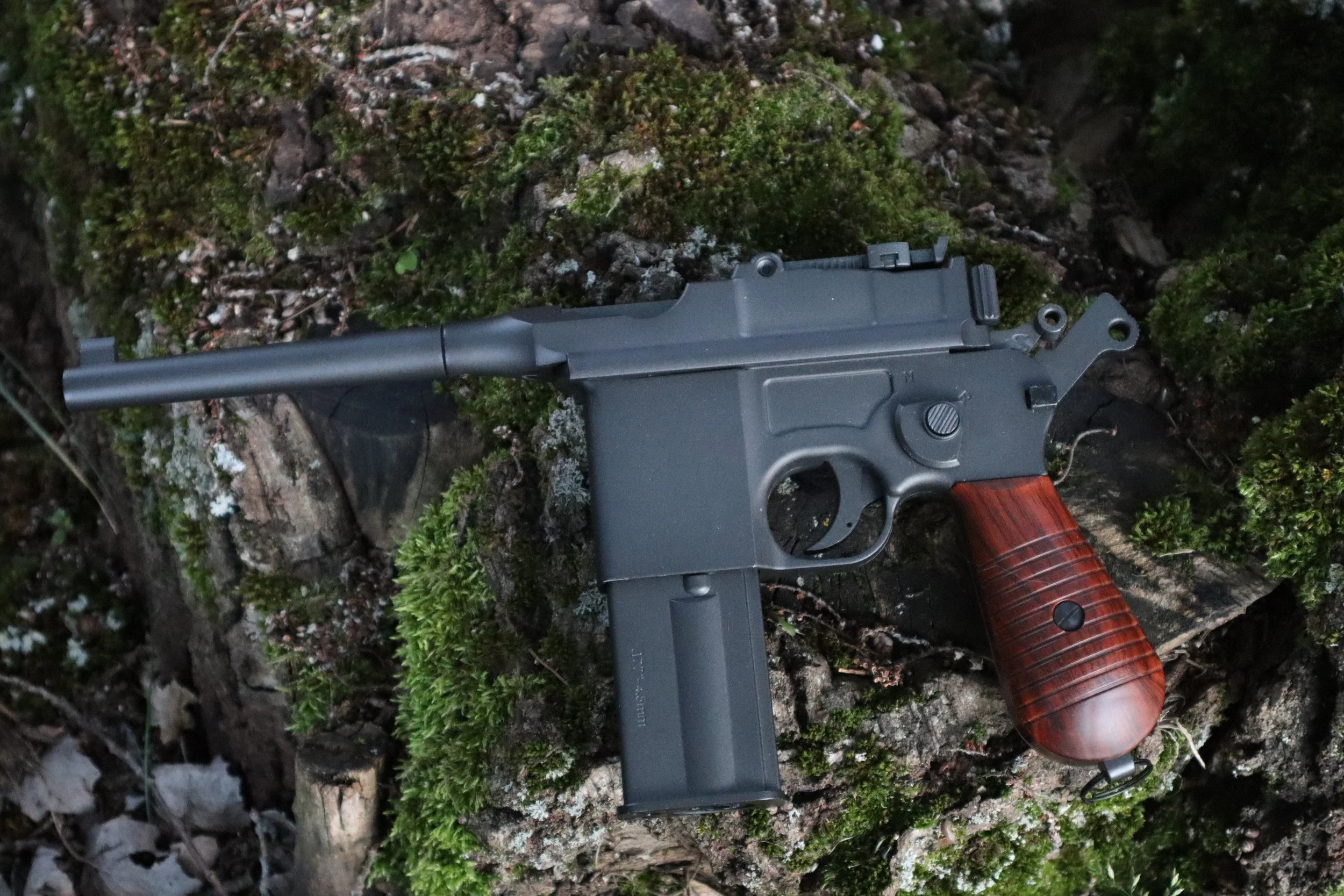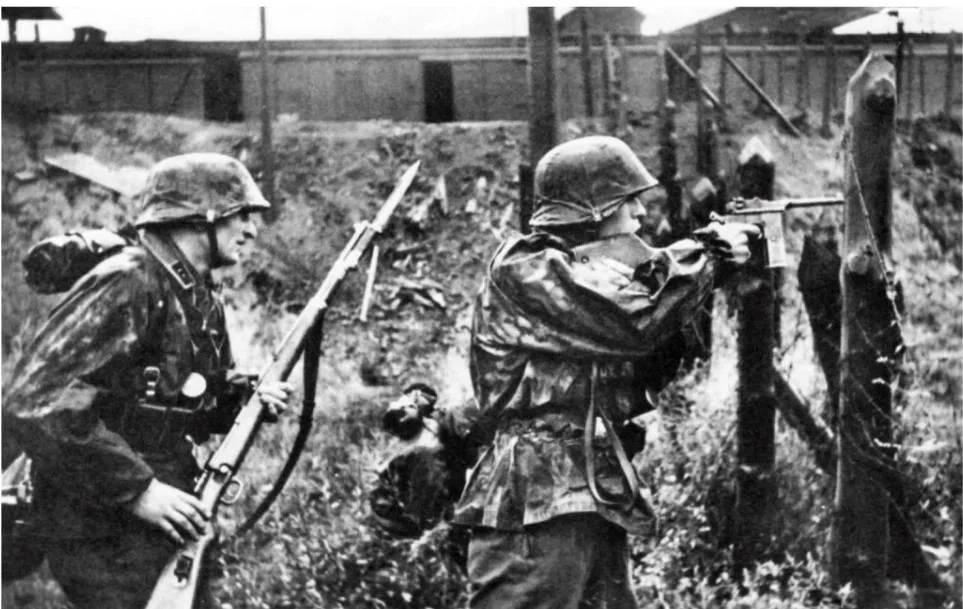Replica: Mauser M712 Schnellfeuer
The Mauser C96 had been one of the first successful autoloading handguns introduced, and had served around the world before, during and after the Great War. In the interwar period Spanish copies proliferated, including a popular select fire model, prompting a German response.
The History
Paul Mauser’s C96 had been one of the most advanced handguns in the world at its introduction, and became the first truly successful autoloading design. Introduced in 1896, it had served around the world in the decades to follow, including on both sides of the Great War of 1914-1918, and was still going strong in the aftermath of the War to End Wars.
In the aftermath of the Armistice of Compiegne severe restrictions had been placed on the German arms industry, and the subsequent Treaty of Versailles further codified these over the ensuing years. This combined with the same lax copyright laws that had allowed Spain to produce millions of Ruby pistols for France during the conflict to allow them to begin mass production of copies of the C96 to fill international demand.
The rear sight on the M712, like the standard C96, is graduated to an optomistic 1,000 meters
This development of select fire variations in Spain in the late 1920s prompted the Germans to respond, with designs appearing in 1930 and streamlined in 1932 as the M712, also known as the “Schnellfeuer” (fast-fire). This design also incorporated a detachable magazine, and soon saw significant popularity. The weapon was purchased in quantity by the Nationalist Chinese to arm their forces, but also found a niche in the hands of the newly organized and rapidly expanding Wehrmacht.
In German military service they were generally issued to couriers as well as Feldgendarmier (MPs) units. Some were also used by Kriegsmarine personnel. It was always overshadowed in service by conventional submachine guns, but remained in service for the duration of the conflict despite production ceaseing in 1938.
The safety consists of a simple lefer alongside the hammer, and raising it results in the locking of the entire mecahnism
The Design
The iconic “Broomhandle” Mauser pistol remains one of the most distinctive designs ever fielded. With its long, unsupported barrel and a large magazine mounted forward of the iconic grip, as a handgun it is somewhat awkward. Originally loading a ten round magazine from chargers, the M712 introduced instead a detachable twenty round box magazine, although two chargers could be used as well if needed. The pistol made use of a conventional external hammer system, with a simple safety located alongside it, but the M712 also featured a select fire mechanism in the form of a switch on the left side of the rear frame. This allowed fully automatic fire at a rate of 900rpm.
The selector switch on the side of the frame is easy to actuate with the thumb, and is marked “N” for “Normalfeuer” (semi-auto), and “R” for “Reihenfeuer” (repeating fire)
As was standard with the C96 line, the pistol was intended to be issued with a wooden holster/stock. This was detachable and allowed the weapon to be transformed into an stand-in for a conventional submachine gun in the M712 configuration, and indeed the pistol is reported to be nearly uncontrollable in full-automatic without one attached.
The replica’s bolt has engraving to simulate an extractor, while the charger guides are similar, being non functional here
The Replica
The example seen here is a replica airgun produced by Umarex of Germany as part of their Legends line. In all, the replica does fairly well to replicate the look, feel and function of the M712 in the form of a CO2 powered BB gun. The weapon disassembles in a manner very similar to the original as well, with both the barrel, extension and frame being made of metal. The barrel itself features a 4.5mm (.177 caliber) smoothbore inner barrel as well. Most of the weight of the peice comes from the magazine, which holds not only BBs but the 12 gram CO2 cartridge that powers the weapon.
The rear of the grip is slotted for a shoulder stock, although the author has not yet purchased one for this replica
Waffen SS soldiers on the Eastern Front one of whom is armed with an M712
Observed Values and Frequency
Updated: June, 2024
AVERAGE VALUE (USD): $100
FREQUENCY: Production
COLLECTOR’S NOTES: As a replica airgun, these remain in current series production.







